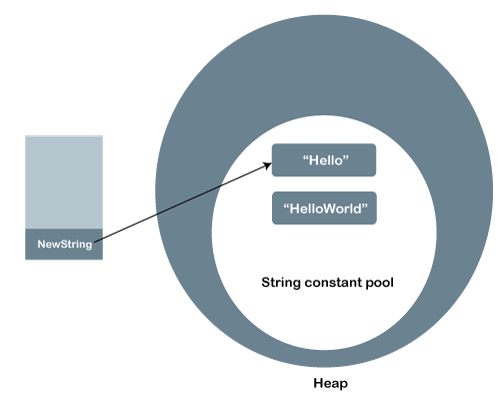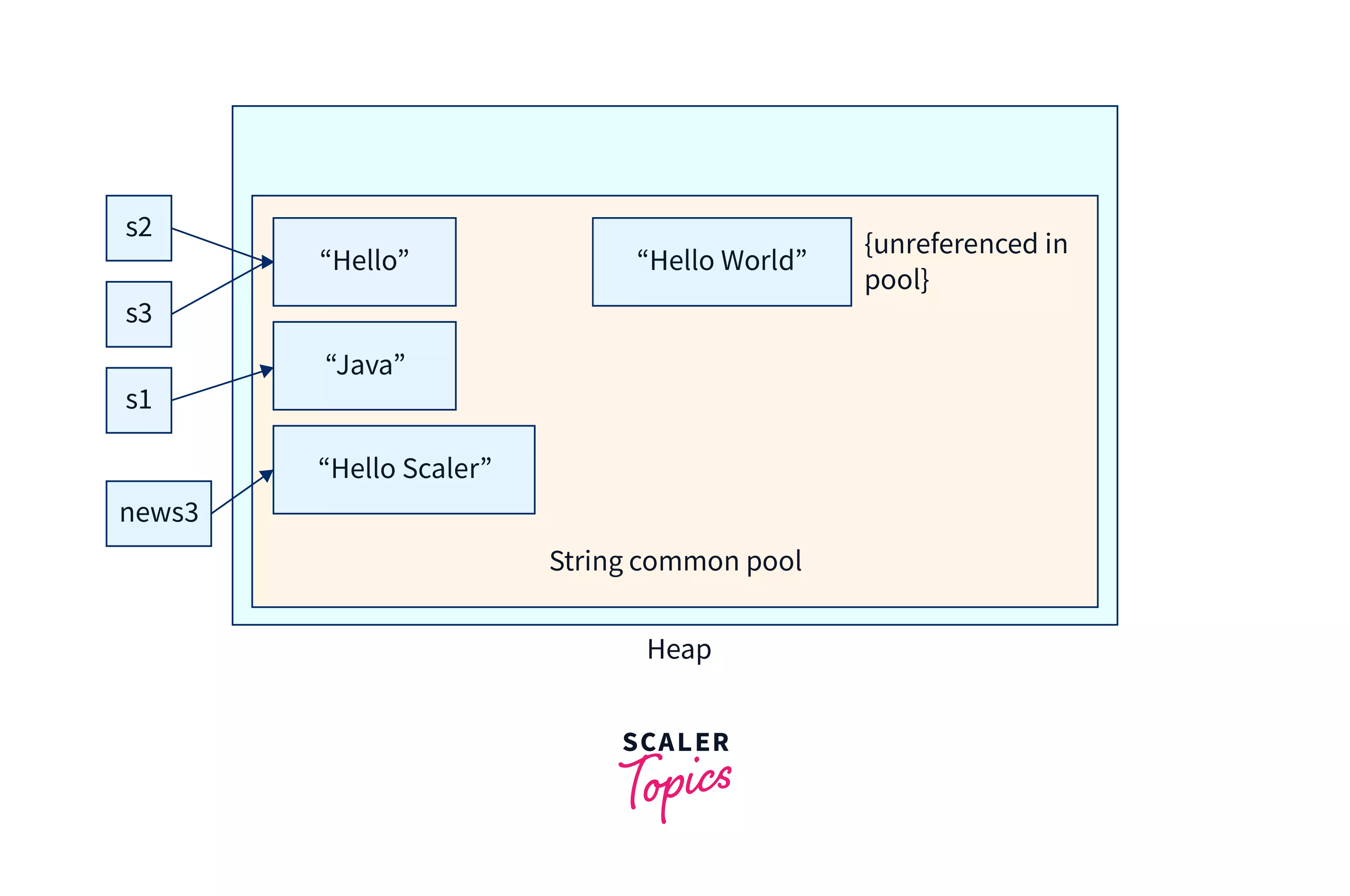Why Are Strings Immutable in Java? In-depth Analysis for Designers
Why Are Strings Immutable in Java? In-depth Analysis for Designers
Blog Article
What Is Unalterable Strings and Just How It Works
In the realm of programs, recognizing the concept of immutable strings is critical for creating protected and robust applications. Immutable strings refer to strings that can not be modified after they are developed, making certain data integrity and predictability within the code. This basic concept plays a critical duty in various programs languages and provides an unique technique to dealing with information. By checking out the intricacies of exactly how immutable strings function, one can discover a globe of benefits and possibilities that can boost the high quality and performance of software application advancement.
The Basics of Immutable Strings
Unalterable strings, as a fundamental principle in shows, are character series that can not be changed when they are created. This implies that as soon as a string is appointed a value, that value can not be altered. In languages like Python and Java, strings are unalterable items, causing numerous implications in regards to memory monitoring and information stability.
Among the vital advantages of immutable strings is that they provide a complacency in information control. Given that the material of an unalterable string can not be changed, it makes sure that the original information continues to be intact, decreasing the risk of unintended changes during program execution (Why are strings immutable in Java?). This residential property likewise streamlines debugging procedures, as programmers can trust that when a string is defined, its worth will not be inadvertently altered
In addition, immutable strings promote effective memory usage. When a brand-new string is developed based on an existing one, as opposed to modifying the initial string, the new worth is kept separately. This method enhances efficiency by lowering memory fragmentation and simplifying memory allotment processes. In general, recognizing the fundamentals of unalterable strings is critical for grasping programming ideas and maximizing code performance.
Benefits of Immutable Strings
Building upon the security and performance advantages of immutable strings, their advantages prolong to enhancing code integrity and simplifying concurrent programs tasks. By being immutable, strings can not be modified after creation, which gets rid of the threat of unplanned changes in the data they keep. This inherent immutability makes certain that once a string is created, its worth remains consistent throughout the program's implementation, lowering the opportunities of bugs created by unexpected alterations.
Additionally, unalterable strings add to code integrity by making it simpler to reason about the state of a program. Considering that strings can not be transformed, developers can trust that a string will always hold the very same worth, streamlining debugging and maintenance initiatives. This predictability brings about a lot more secure and trustworthy codebases.

Implementation in Programs Languages
Within various programs languages, the unification of unalterable strings is a basic aspect that affects exactly how data is taken care of and adjusted within code structures. The application of unalterable strings differs throughout different shows languages, with each language using its own mechanisms to sustain this concept.

In contrast, languages like C and C++ do not have integrated support for immutable strings. Developers in these languages need to manually implement immutability by applying rules within their code to stop straight check over here alterations to string items.
Finest Practices for Functioning With Immutable Strings
When taking care of immutable strings in shows languages like Java and Python, sticking to best practices guarantees effective and safe and secure data adjustment. Among the essential finest methods is to make use of StringBuilder or StringBuffer rather of straight adjusting strings, particularly when managing considerable concatenation operations. These classes supply mutable options for string control, assisting to stay clear of unneeded memory appropriations and boosting efficiency.
In addition, when working with sensitive information such as passwords or API keys, it is important to stay clear of keeping them as plain message in unalterable strings. Making use of secure storage space mechanisms like char selections or specialized libraries for taking care of delicate info aids alleviate protection threats connected with unalterable strings.
Real-world Applications and Examples
Checking out useful applications of immutable strings in various industries discloses their considerable effect on data stability and system reliability. In the medical care industry, immutable strings play an important function in making certain the protection and discretion of individual information. By stopping unauthorized adjustments to delicate details such as clinical records and prescriptions, immutable strings help maintain compliance with rigorous personal privacy regulations like HIPAA.
Financial establishments also gain from the unalterable nature of strings to boost the safety and security of customer data and purchase documents. Immutable strings help protect against fraud and unauthorized modifications to economic information, offering a he has a good point durable protection against cyber hazards and ensuring the count on and self-confidence of clients.

Final Thought
Best techniques for functioning with immutable strings include staying clear of direct modifications and making use of approaches that return new string objects. Real-world applications of immutable strings consist of information security, caching, and string control tasks.
Immutable strings refer to strings that can not be changed after they are created, ensuring data stability and predictability within the code. When a brand-new string is created based on an existing one, instead than changing the original string, the new value is kept individually.In languages like Java and Python, strings are unalterable by default, indicating that when a string object is created, its worth can not be altered - Why are strings immutable in Java?. Best methods for functioning with immutable strings consist of preventing straight adjustments and utilizing methods that return new string items. Real-world applications of unalterable strings consist of information encryption, caching, and string control tasks
Report this page